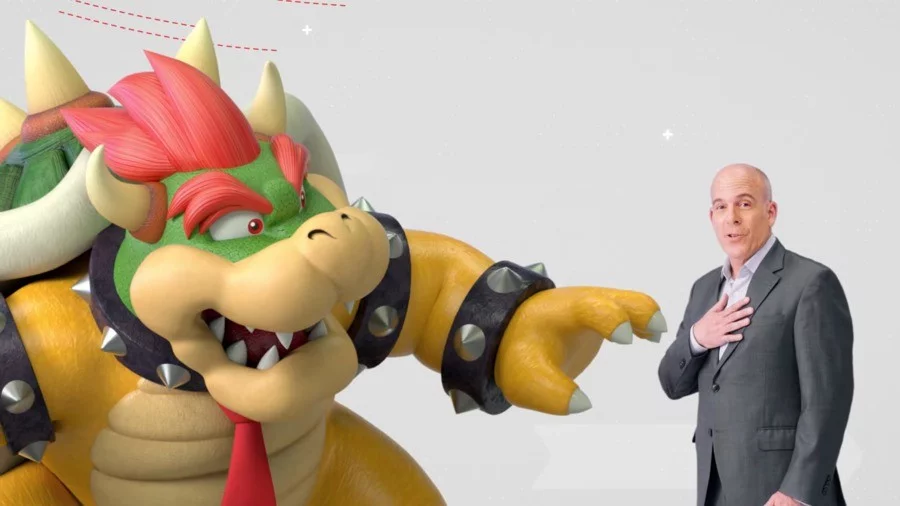
Nintendo of America president Doug Bowser made his official Nintendo Direct debut in his new role during the company’s E3 showing this week, and he’s quickly followed that appearance with some rather important comments on an industry topic that’s often discussed by the game development community: crunch. While talking with IGN, Bowser made it clear that Nintendo is very proud of the work-life balance it affords its employees.
“One of our key tenets is that we bring smiles to people’s faces, and we talk about that all the time,” he said. “For us, that applies to our own employees. We need to make sure that our employees have good work-life balance.
“One of those examples is, we will not bring a game to market before it’s ready. We just talked about one example [in Animal Crossing’s delay]. It’s really important that we have that balance in our world. It’s actually something we’re proud of.”
The new Animal Crossing is one of the more widely anticipated titles from Nintendo, and by pushing it back to March 20, 2020, the company is only giving the game 11 days to contribute to the current fiscal year’s bottom line. This decision instantly cut $1 billion from Nintendo’s stock. It’s a rare move of putting employees’ quality of life above shareholders’ interests for a major game company.
Rockstar Games has often had an “it’s done when it’s done” attitude towards its own huge game projects, but that didn’t prevent the Grand Theft Auto developer from facing huge criticism for its work culture leading up to the launch of Red Dead Redemption 2 last year. It’s a shame that the RDR2 team had to endure such hardship, but it makes Nintendo’s stance all the more noteworthy in an industry that’s still grappling with how to eliminate crunch.
As Naughty Dog and EA veteran Amy Hennig has explained before, massive teams crunching and burning out their most creative and innovative talent is no way to sustain an industry, especially not on the triple-A side where costs are skyrocketing.
For Nintendo, as former president Reggie Fils-Aime told Waypoint last year, the goal is to keep its employees healthy and to ultimately set an example for the industry at large.
“…we’re not asking people to go for a couple days without sleep,” he said. “We’re not asking people to ignore their family and friends and their social life. We’re not asking people to do things that are unhealthy. That is not our approach.”
That’s admirable, but it is important to recognize that neither Fils-Aime at that time, nor Bowser currently, can speak for the entirety of Nintendo, and we all know that actual game development takes place in Japan, where corporate culture could mean something very, very different for the workforce.
“I can only answer this question from Nintendo of America perspective and for us, crunch happens differently,” Fils-Aime noted last year. “It’s not a development crunch, but it could be a bug check crunch. Or it’s a crunch in preparing for an event. Or a crunch in preparing a game to pass our lot check process. Our approach is this: We flex through the use of contract employees. We flex in the way we work with our agency partners. Our mentality is we’re going to flex by adding headcount as appropriate to help us get over a crunch. That’s the way we approach it.”
Whether or not that mentality is applied with the same veracity (or at all) within Japan where Animal Crossing and the other tentpole titles are being developed is not known. And it’s not a major secret that Japanese salarymen often are expected to endure brutally long workweeks.
GameDaily asked Nintendo about Bowser’s comments and whether the anti-crunch stance is applied across the Pacific, but we’ve yet to receive a response. In the meantime, Kantan Games analyst Dr. Serkan Toto, an expert on the Japanese games landscape, said that he’s willing to give Nintendo the benefit of the doubt.
“Nintendo in Japan is a hermetically closed company, so not much is publicly known as to how crunch-heavy development work is in Kyoto,” he acknowledged in an email to GameDaily. “Yes, a lot (not all) Japanese developers are notorious for their harsh work culture with unpaid overtime, lengthy periods of crunch and continuous pressure. Over the years, I heard some horror stories from a few studios that are especially bad.
“However, I think Nintendo’s work culture is indeed different. Even though it’s a Japanese company, Nintendo is unique in many ways, and I believe this extends to the way they treat their employees, at least in terms of crunch.”
 GameDaily.biz © 2025 | All Rights Reserved.
GameDaily.biz © 2025 | All Rights Reserved.